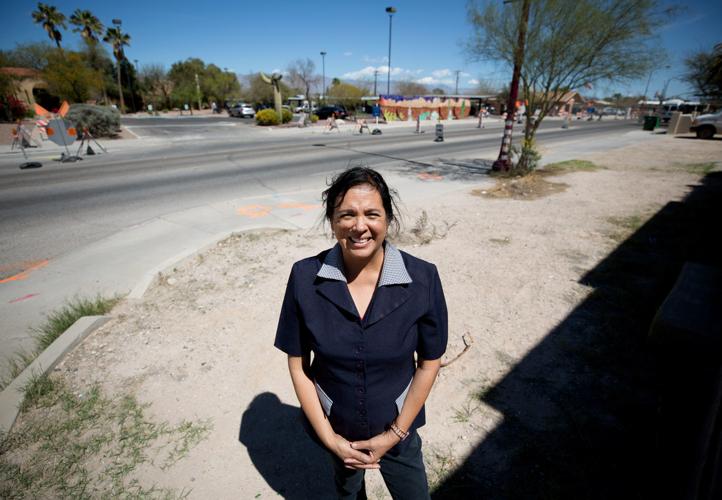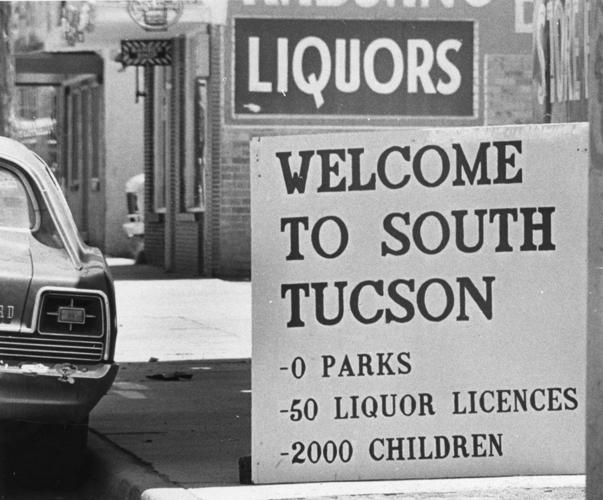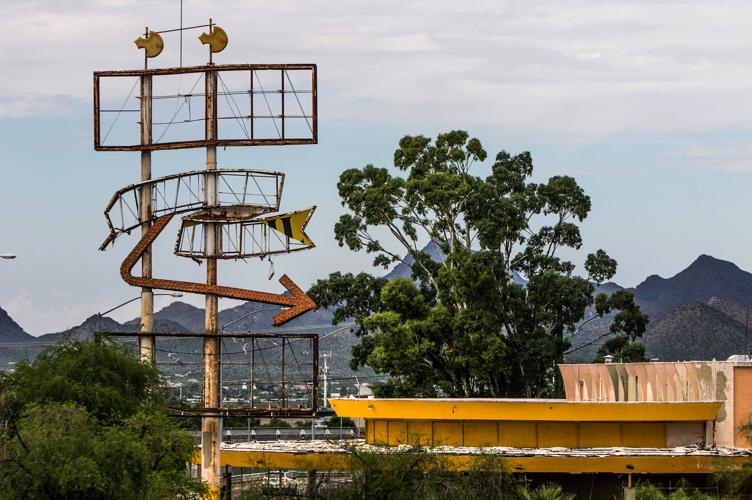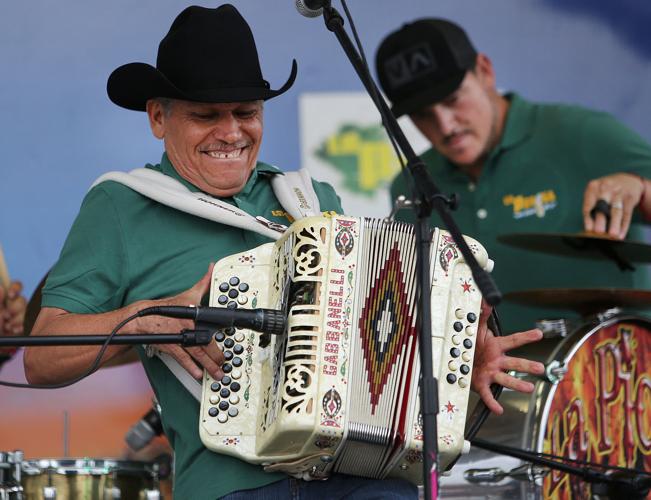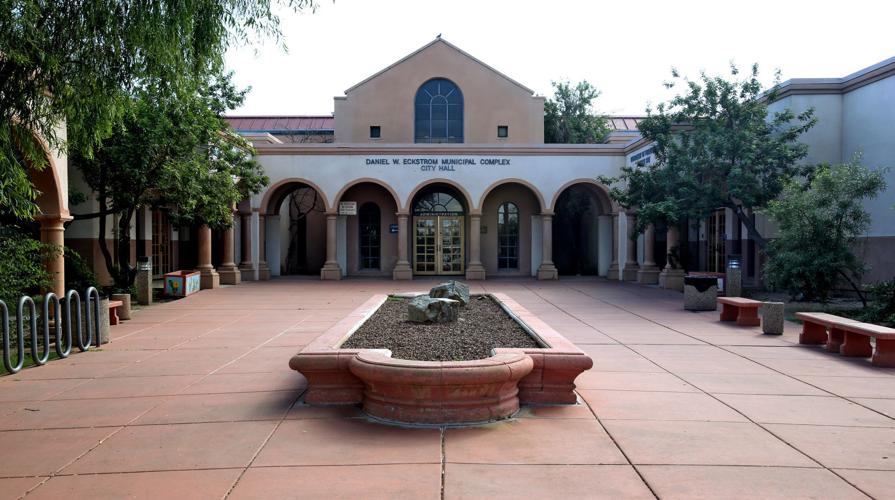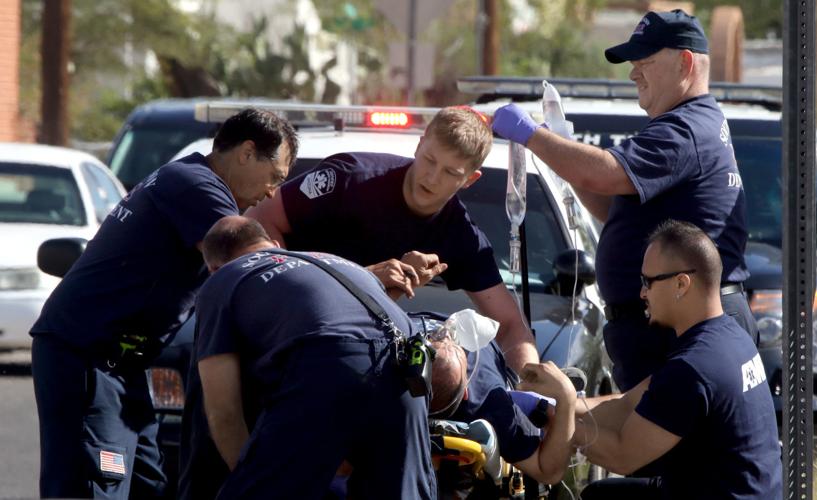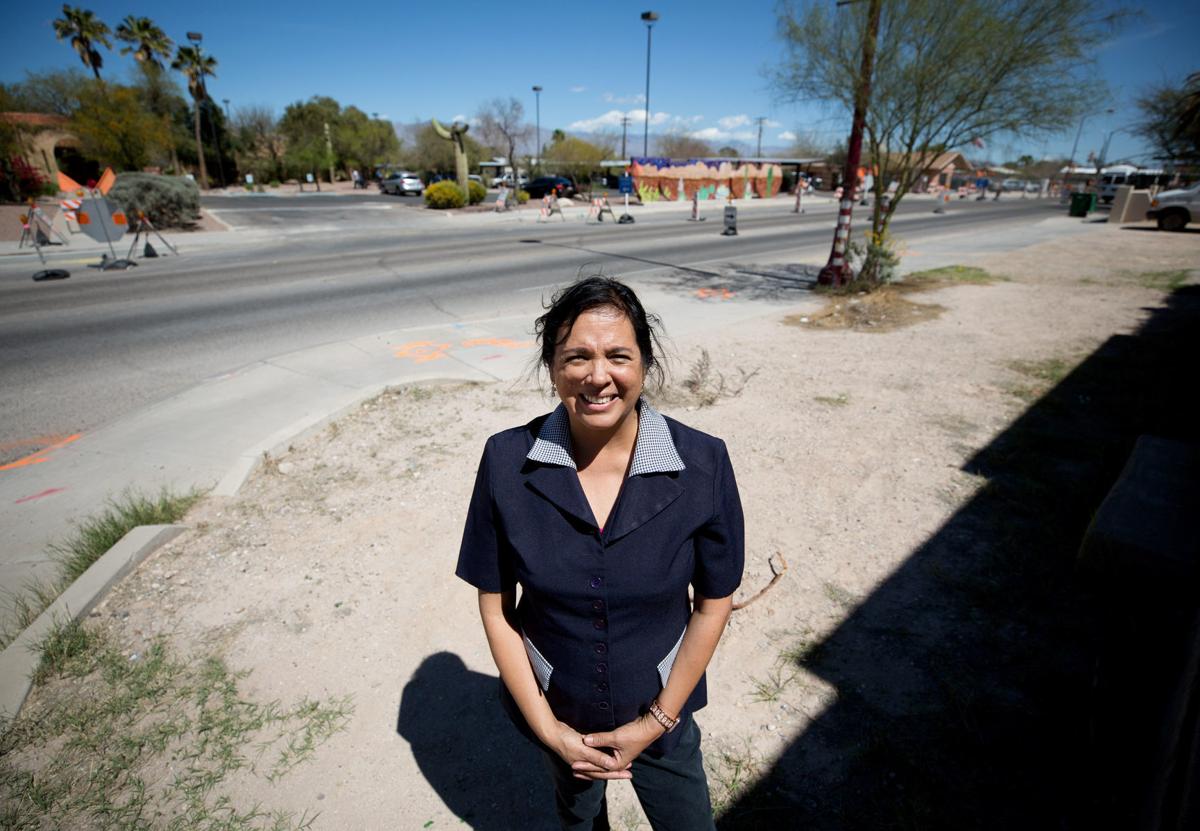Barbie Urias has lived in South Tucson for nearly half of her 54 years.
“I choose to live here,” said Urias. “It’s my hometown.”
For Urias, South Tucson is a good place to live. It’s small, easy to get around, and it feels like a large family.
I suspect she reflects the sentiments of many of South Tucson’s approximate 5,500 residents, the vast majority of whom are Mexican-American and Native American, and most of whom live below the poverty line. Because of the racial and class makeup, South Tucson is easy to kick around even if Tucsonans drive south of 22nd Street to enjoy the food from the town’s Mexican restaurants.

South Tucson’s total sales tax will rise to 11.1% after the City Council approved a half-cent sales tax increase. The city of Tucson’s total sales tax rate is 8.7%.
While many people outside the borders of this one-square-mile community may look down on South Tucson, Urias loves her “pueblo within a pueblo” because it’s an independent municipality.
“It’s a nice distinguishment,” said Urias, a mother and grandmother.
But that uniqueness of South Tucson, which incorporated in 1940, is threatened by a persistent financial crisis and continual political instability.

Members of the South Tucson Fire Department and an ambulance service get ready to transport a victim along South Third Avenue near East Silverlake Street in South Tucson, Ariz., on March 23, 2017. The financial instability of South Tucson has imperiled its police and fire departments. Recently 16 firefighters, mostly reservists, resigned but the city is in the process of hiring replacements.
Recently 16 of the town’s firefighters resigned, hobbling the small department, and nearly two weeks ago the mayor and three council members were recalled and replaced with four new council members. And this is the just the latest. South Tucson residents lost garbage collection in a payment dispute with a private waste hauler in 2015. Pima County has bailed out South Tucson several times by restructuring debt and payments owed to the county. And city managers, attorneys and department heads have come and gone.

The deteriorated Spanish Trail Motel sign symbolizes the town’s image to outsiders and its financial troubles to its residents.
A look at the deteriorated Spanish Trail Motel sign at the southern border of South Tucson along Interstate 10, symbolizes the town’s negative image to outsiders and its financial troubles to its residents.
The town’s financial difficulties can be traced back 35 years when South Tucson had to pay a $3.6 million settlement to a Tucson police officer who was left paralyzed after being shot by a South Tucson police officer.
On Thursday, City Manager Sixto Molina, who took the job in January 2017, insisted South Tucson, with 40 full-time employees, is getting a handle on its finances and its public safety departments. He said the police department with 16 employees is “fully staffed” and that the fire department will soon be back to full force with 37, nearly all of whom are reserve firefighters.
It is the uncertainty of the public safety departments that worries residents and business owners. It is those two departments and its employees who have the most interaction with residents, many of whom are elderly. Fire and police also frequently attend to homeless individuals in South Tucson who live or pass through because of the several social service providers located in and near the town.
Maintaining fire and police services are paramount.
“It’s a concern for us,” said Erica Frisby, who owns Los Divinos Tortillas on South Fourth Avenue. Although there has been turmoil with the police and fire departments, Frisby said there has been no noticeable public safety problems. Frisby said she moved her business to South Tucson in 2012 from a busier intersection five blocks away in Tucson.

Ramon Octavio works the accordion while the band La Picosa plays during the City of South Tucson' s 75th Anniversary Music and Art Festival on South Fourth Avenue in 2015. South Tucson is overwhelmingly Mexican-American and Native American. While it is a low-income community, there exists a strong sense of pride for its Mexican food and culture.
Arlene Lopez, a lifelong resident whose husband was elected to the council in the recall, said she is confident that South Tucson can pull through this latest episode. She said the city council has to show stability to attract new investments and demonstrate to doubters that South Tucson can remain independent.
“We’re one big family,” said Lopez.
Outside the John Valenzuela Youth Center on South Sixth Avenue, across the street from the municipal offices, Fernando Gonzalez, a retired miner, was walking his dog. Like Urias and Lopez, Gonzalez chooses to live in South Tucson. He said the outside negative perceptions of South Tucson are distorted.
“Our problems here are no different than those in other parts of Tucson,” he added.

A “welcome” sign in South Tucson in 1979. South Tucson incorporated in 1940 and many residents are proud that it is an independent municipality. But the largely low-income community has struggled with social and financial pressures.
A long-time resident, he agreed that the town’s independent status is worthy but up to a point.
“If we can’t afford paying for police and fire, then what good is it to have a city government?” he asked rhetorically. “If we lose our police and firefighters, then what do we do? Become a part of Tucson?”
There are plenty of questions about the town’s future. If South Tucson can’t fix its financial problems, will it be absorbed by Tucson? Will South Tucson just muddle through, patching up its finances and repeat its cycle of dismissing and introducing new city managers? Will South Tucson find a way to boost new businesses?
I suspect that most of South Tucson residents would like to remain a “pueblo within a pueblo.” And this South Tucson “family” will do what it can to remain as one.


